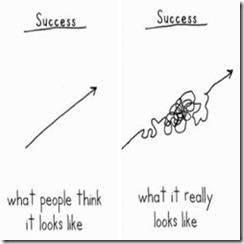 Often candidates freeze when a hiring manager or other interviewer asks them if they have any questions.
Often candidates freeze when a hiring manager or other interviewer asks them if they have any questions.
Memorize these two as your backup answers to use in your next interview.
1. In this role, what does success look like?
2. Will I have the tools to be successful?
These two questions are special. The answers from the prospective employer will reveal details about the opportunity to measure how well the company fits you. Remember, any job interview is a two way examination to determine two things.
Do they want you to work for them and do you want them as a company to work for.
Part of the interview with a prospective company is to sell you on working for the company. Assuming you are working with an exceptional recruiter, you will have already received information about the job, about the pay, benefits, and other general reasons the company is good.
By the time the company has decided to interview you, you are likely going to be one of the short-list of well qualified candidates they may offer the job to. So, part of the interview you experience face-to-face will be the typical “it’s great to work here” pitch.
It’s not that the recruiter is misleading you. You need to rely on every source of information available to make a decision to accept the job they might offer you. You want to know that not only is the job a good one for you, but that you can be successful in it.
That is the root of these two questions. First, you want to know what the target metric for success is, at some 3, 6, 9 or 12 month milestones. You need to know where the direction is pointing toward what target. Then, you want to be sure that you will have the resources to be successful. This is the path, rarely straight, and often changing mid-course, that you will embark to get there.
The answers to these questions may reveal one of several scenarios.
- The job may be a new one, and you get to set the expectations and metrics.
- No one understands, and has unrealistic expectations for what one person can do.
- The role may be funded, but the tools, project budget and other resources (including team, if it is a management role) may not be funded.
- Your boss may not understand what the role must do.
There are other scenarios, of course. But the two questions above will reveal information and spark other questions you as a candidate will want to ask so you can confidently accept the position knowing that you can effectively achieve results and meet expectations.
No one wins if the company or candidate expectations do not match.
Barton Professional Placement Group is keen on ensuring this kind of communication happens between hiring company and the best candidates. In the discovery process, our account managers ask the same questions, and these criteria find their way into the screening and qualification questions we use to find the best talent for our clients.
Barton Professional Placement Group puts pride in its value proposition to enable great matchups. If you are a candidate that likes this approach, please send us your resume. If you are a client looking for this level of service, we want to talk to you. Call us today.

